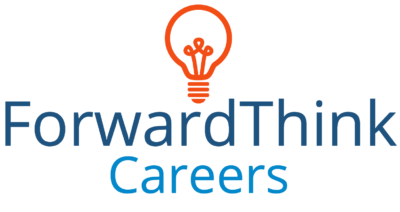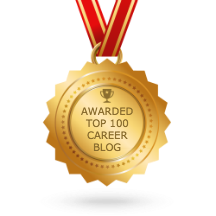

As a career coach, I’m always looking for new ways to convey the fundamentals of job search to my clients. I’ve heard people make comparisons between job searching and dating. Or some advise job seekers to think like a doctor consulting an ailing patient.
Maybe it was after watching too many old episodes of The Good Wife that I thought of an interesting analogy. Standing out as a candidate isn’t so different from a lawyer arguing a case in court. Both have their own version of arguments, evidence, witnesses, and a jury. Enter Exhibit A…
The Argument
Every lawyer walks into a courtroom prepared to make a compelling argument and convince the jury of the defendant’s guilt or innocence. “Based on the extensive evidence, Joe Schmo is guilty of murdering his wife in the first degree,” the prosecutor might purport.
When you’re doing a job search, it’s important to approach every opportunity with this desire to argue your case. And you shouldn’t wait for the interview to do so. It starts with your cover letter and resume. But you can’t compose your argument in a vacuum. Each will be based on the job description and your knowledge of the company’s pain points.
For example, let’s say you’re applying for a marketing manager position at a midsize fashion company. Based on the requirements of the job, your main argument might be that your proven expertise in email marketing, copywriting, and social media ad campaigns within the fashion industry make you an excellent fit for the position.
You might be thinking — well, that sounds pretty general. Maybe several applicants can make a similar argument. Don’t worry, your evidence and witnesses will help you differentiate yourself. Think of the argument as a lawyer’s opening statements. They don’t dive into all the evidence at that point. They’re just presenting a thesis statement.
As a job seeker, the main purpose of the argument is to boil down your fit for the position into one or two concise sentences. These can be included in the first paragraph of your cover letter. You can also call out these relevant skill sets in the professional summary of your resume.
The Evidence
Lawyers know that winning their case depends on the thoroughness and veracity of their evidence. If the jury believes the evidence is compelling enough, their verdict will reflect that. But if something feels vague or incomplete, it can sway things the other direction.
As a candidate, your evidence is more than just your experience, skills, and education. It boils down to your quantifiable achievements. You can say that you’re skilled at project management, JavaScript, event planning or Photoshop, but if you don’t have the goods to back it up, no one is going to take you at your word.
How do you compile your evidence? Based on the requirements of the position, brainstorm accomplishments that demonstrate you’ve successfully solved a similar problem in the past. Then phrase these as accomplishment statements on your resume, focusing on the action you took and result you got.
Returning to the marketing manager example, an accomplishment statement might read, “Created and implemented Instagram ad campaign, increasing sales of new clothing line by 20%.” In an interview setting, it’s also helpful to start by describing the problem at hand, so the approach becomes PAR – problem, action, result.
Note that you won’t use the same accomplishment statements for every job you’re targeting. Every position has different requirements, and every company has unique needs for their team. So make sure your evidence is aligned with the specific problems they need solving.
The Witnesses
Lawyers realize that the evidence they submit to the court isn’t always enough. So they put witnesses on the stand who can provide further insight into the case — and hopefully influence the jury.
When you’re doing a job search, having persuasive recommendations from current and former supervisors, colleagues, and clients can really set you apart. Now, of course, you can’t bring any of them into the interview with you. But you can ask them to write recommendations on your LinkedIn profile that really speak to your strengths.
You can also work social proof into your interview answers by mentioning positive feedback you’ve received on performance evaluations — or any awards or recognition you’ve been given.
Your “witnesses” can also affect your chances of getting a job offer if you’ve listed them as references. Nothing is worse than a potential employer doing a reference check and completely catching this person off-guard. So make sure you’re in contact with your references as you’re getting close to an offer. Give them ample information on the position you’re being considered for and which of your professional attributes you’d like them to highlight.
The Jury
And finally, lawyers know that no matter how many cartwheels and hat tricks they do in the courtroom, if the jury doesn’t buy their case, it’s over. As the jury sits and listens to the arguments made by counsel, they’ll often experience moments of doubt or confusion. They might even question a piece of evidence.
In doing a job search, the hard truth is that you’re going to be judged by potential employers. Whether they’re reviewing your resume or asking you tough questions in an interview, they’ll likely have some objections or doubts about your fit for the position.
Maybe you’re slightly under-qualified or over-qualified. Perhaps you have unexplained gaps in your work history, or while you have the right functional experience for the job, you’re brand new to the industry. Whatever the case may be, it’s your job to anticipate these objections and offer concrete ways to overcome them.
It might come in the form of, “I understand that I don’t have X, but I DO have Y.” Or you can offer to take outside coursework to shore up certain skills. The key is to instill confidence in the employer that your imperfections aren’t deal breakers and won’t prevent you from being successful in the job.
One small, painful truth about the jury. All lawyers know that they can argue a flawless case and still lose. Juries and employers alike have inherit preferences, biases, and self-serving motivations. As a candidate, you can absolutely nail the interview and still not get an offer…and you may never know why.
But just like a lawyer knows there will always be another case, job seekers will always have more job opportunities. It really comes down to taking your preparation very seriously and then walking out the door knowing you did everything you possibly could. Case closed.



